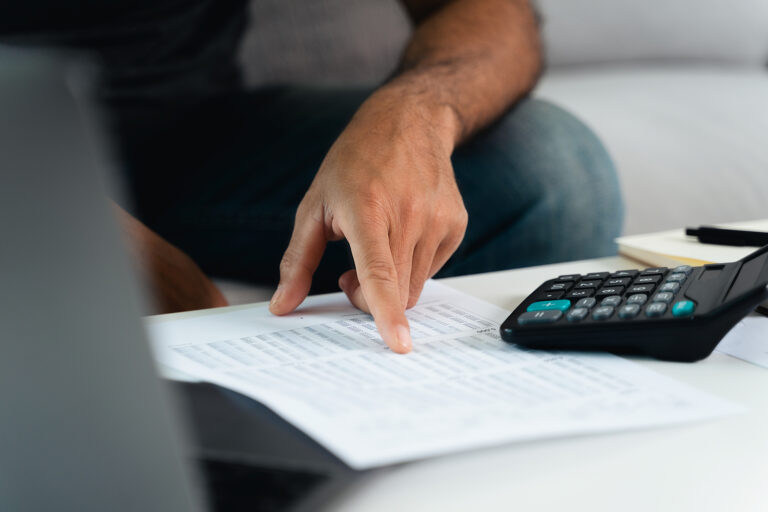Whether for business, leisure, or the simple joy of exploration, we find ourselves in different corners of the globe, experiencing diverse cultures and landscapes. However, this freedom of movement also poses a risk to our personal identity. Identity theft is a growing concern, especially for travelers who might not be aware of the potential threats they face while on the move.
This article will offer practical tips and advice on protecting your identity while traveling. We will delve into practical strategies, from securing your online presence to safeguarding essential documents, ensuring your journey remains worry-free and enjoyable. Read on to discover crucial steps for preserving your privacy and protecting your identity no matter where your travels take you.
Understanding Identity Theft
Identity theft, also termed identity fraud, is a crime where an imposter obtains crucial pieces of personally identifiable information (PII), such as your name, social security number, or credit card number, without your consent. This information is then used to commit fraud, from making unauthorized transactions on your credit cards to opening new accounts in your name.
The scope of identity theft is vast and can take many forms. For instance, financial identity theft involves stealing another person’s financial data to exploit their savings and credit lines. In other cases, identity thieves might use your personal information to file a fraudulent tax return.
When it comes to traveling, the risks amplify. Unknown environments, unfamiliar transactions, and the often necessary use of public Wi-Fi networks make travelers prime targets for these identity thieves.
Understanding the concept of identity theft is the first step towards safeguarding your personal information while traveling. However, the rest of this article will provide you with actionable tips and strategies to protect yourself against this growing threat.
Strategies for Protecting Your Identity When Traveling
Keep Personal Information Secure
One of the most effective ways to protect your identity while traveling is to be mindful of the personal information you carry with you. Taking unnecessary personal documents can increase the risk of these items being lost or stolen, leading to potential identity theft. For instance, things like your social security card, extra credit cards, or checks are better left at home unless necessary for your trip.
Instead, only carry the essentials, such as your driver’s license or identification card and the credit or debit card you plan to use. Even then, it is crucial to store these items securely. A wallet or purse with RFID-blocking technology can provide an added layer of protection against digital theft, preventing thieves from scanning and stealing your card information remotely.
However, protecting physical documents is not enough in today’s digital age. Much of our personal information is stored on our digital devices, making them a potential goldmine for identity thieves. Here are some tips to digitally secure your personal information:
- Strong, Unique Passwords: Use strong and unique passwords for all your accounts. Consider using a reliable password manager to store your passwords securely.
- Two-Factor Authentication (2FA): Enable two-factor authentication wherever possible. This adds an extra layer of security by requiring a second form of verification in addition to your password.
- Secure Your Devices: Ensure that a robust password or biometric security feature protects your smartphone, tablet, or laptop. Also, keep your devices updated with the latest security patches and updates.
- Beware of Phishing Attempts: Be vigilant about any suspicious emails or messages asking for your personal information. Always double-check the source before clicking on any links or downloading attachments.
Be Mindful of Public Wi-Fi Networks
Public Wi-Fi networks can be a boon for travelers, providing easy and often free access to the internet. However, these networks also pose significant security risks. One of the main dangers of public Wi-Fi is its vulnerability to hackers due to a lack of proper security measures and the ability to position themselves between users and the connection point, thereby intercepting data transferred over the network.
Despite these risks, there are ways to protect yourself while using public Wi-Fi. Here are some tips:
- Use a VPN: A Virtual Private Network (VPN) creates a secure connection to the internet, encrypting your data and making it harder for hackers to intercept.
- Enable Firewall: Ensure your device’s firewall is turned on. It acts as a barrier between your device and the internet, blocking potential threats.
- HTTPS: Always use websites that start with ‘https’ when browsing the internet. These sites encrypt the data transferred between your device and the location.
- Turn Off Sharing: Disable file sharing on your device to prevent unauthorized access to your files.
- Update Your Software: Regularly update your device’s software. Updates often include security enhancements that can protect against new threats.
You can safely use public Wi-Fi networks while traveling by being mindful of these risks and taking the necessary precautions.
Use ATMs Wisely
When traveling, accessing your money is a necessity. However, using ATMs in unfamiliar locations presents risks that could compromise your financial security.
A potential risk involved with using ATMs is encountering a compromised machine. Criminals can install devices known as skimmers on ATMs to steal card information. These skimmers are often hard to detect, with indicators including scratches, sticky adhesive, damaged pieces, or a loose card slot.
Moreover, attackers have been known to infect ATMs with malware, granting them access to users’ information.
Some ways to safely withdraw cash abroad include:
- Use Bank-Operated ATMs: These are generally safer and more secure than independent ATMs.
- Check for Signs of Tampering: Before using an ATM, check for any signs of tampering, including a loose card slot, keypad resistance, or scratches.
- Be Aware of Your Surroundings: Avoid using ATMs in poorly lit or secluded areas.
- Shield Your PIN: Always cover the keypad when entering your PIN to prevent any hidden cameras or bystanders from capturing your information[^10^].
- Monitor Your Accounts: Regularly check your bank statements for any unauthorized transactions.
Regularly Monitor Your Accounts
In the fight against identity theft, staying vigilant is your best defense. Regularly monitoring your bank and credit card statements allows you to spot any unusual activities or discrepancies that might indicate fraud. Catching these anomalies early helps minimize the damage caused by identity theft and expedites resolving the issue.
Here is how you can ensure effective monitoring of your accounts:
1. Regular Checks: Make it a habit to review your bank and credit card statements at least once a week. Look for any transactions you do not recognize, no matter how small. Thieves often test the waters with minor purchases before moving on to larger ones.
2. Online Banking: Many banks offer online banking services that allow you to keep track of your transactions in real time. Utilize these platforms to monitor your accounts, especially during your travels closely.
3. Mobile Apps: Most banks and credit card companies have mobile apps that provide instant access to your account information. These apps often have features that allow you to set up alerts for various types of transactions.
4. Set Up Alerts: Many financial institutions offer customizable alerts that notify you of specific activities on your account. For instance, you can set up alerts for international transactions, online purchases, or transactions exceeding a particular amount. This way, you will be immediately notified of any potential fraudulent activity.
Remember, the sooner you detect identity theft, the less impact it will have on your finances and credit score. Regular monitoring and prompt action can save you from significant loss and stress.
What to Do if You Become a Victim
Discovering that you have become a victim of identity theft while traveling can be an unnerving experience. However, acting promptly and decisively can help mitigate the damage. Here are the steps you should take if you suspect you have become a victim of identity theft:
- Notify Relevant Companies or Agencies: If you notice suspicious activity on your bank or credit card accounts, immediately notify your financial institution. They can help secure your account and investigate any fraudulent transactions.
- File a Police Report: Report the incident to local law enforcement in the area where the theft occurred. This will provide you with official documentation of the crime, which can be helpful when disputing fraudulent charges or accounts.
- Report to the Federal Trade Commission (FTC): File a report with the FTC online at IdentityTheft.gov or call 1-877-438-4338. The FTC provides a step-by-step recovery plan and pre-filled letters and forms to send to credit bureaus, businesses, and debt collectors.
- Place a Credit Freeze or Fraud Alert: Contact the three major credit reporting agencies (Experian, Equifax, and TransUnion) and freeze your credit report. This prevents thieves from opening new accounts in your name. Alternatively, you can place a fraud alert requiring businesses to verify your identity before issuing credit.
- Close Tampered Accounts: If you identify any accounts that have been tampered with or opened fraudulently, close them immediately. Be sure to speak with someone in the security or fraud department of the respective company.
Remember, the key is to act swiftly and thoroughly. Each step is crucial in ensuring your identity is restored, and further damage is prevented.
Travel with Confidence
In the age of digital connectivity and relentless cyber threats, protecting your identity while traveling is more important than ever. Each step is crucial in safeguarding your personal information, from securing your documents to being cautious about using public Wi-Fi networks.
Remember, identity theft is not just about losing personal data – it is about the potential disruption and long-term damage it can cause to your life. The aftermath can be stressful and time-consuming, often involving legal battles, credit repair, and emotional trauma.
Hence, it is essential to be proactive rather than reactive and vigilant about the information you share online and offline.
Traveling is supposed to be an enjoyable experience. Do not let the fear of identity theft dampen your spirit of adventure. By taking these preventative measures, you can focus on making memories secure in the knowledge that your personal information is protected.







